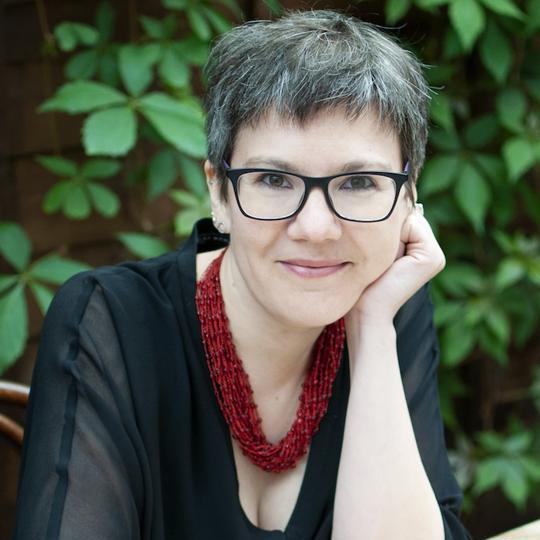Please note: this event has passed
The ESRC Centre for Society and Mental Health is excited to announce its third conference will take place on Tuesday 1st October 2024 at Science Gallery London.
This year, we invite you to join us as we share the latest findings and emerging insights from the first five years of our interdisciplinary research on the impact of rapid social changes on mental health. We’ll share what we’ve discovered since the Centre’s founding in 2020 and we invite you to think with us as we shift the narrative on society and mental health.
The conference will be an important gathering for all interested in putting society at the heart of how we think about and understand mental health – don’t miss this opportunity to be part of the conversation!
Who can attend?
The conference is open to all, regardless of professional background or experience. We recognise that expertise in mental health is varied and we welcome attendees from a range of backgrounds, including people with lived experience, researchers, community organisations, charities, healthcare professionals, students and others.
How to register
To secure your place at the conference, please click 'Register for this event', then 'Book a ticket' and complete the registration form.
Please note that as spaces are limited and free events are often oversubscribed, early registration is encouraged. On the registration form, you will be able to indicate which sessions you would like to attend on the day.
What to expect on the day
Please see a summary of the day's sessions below, with more details and a full programme to be released soon.
09:15-09:45 Registration
10:00-10:15 Welcome
Join the Centre’s co-directors Craig Morgan and Hanna Kienzler for a formal welcome and launch of the day’s programme.
10:15-11:15 Navigating crisis and change
This opening session will showcase the Centre’s research on the effects of contemporary crises on mental health and health service responses. We’ll explore the impacts of the Covid-19 pandemic and the subsequent economic crisis, examining challenges and responses from both health services and communities.
11:15-11:45 BREAK
11:45-12:45 Addressing complexity: intersectional and multiple-level approaches to understanding social inequalities in mental health
Join this session for a series of lightning talks by Centre researchers featuring findings that document and examine social inequalities in mental health from the individual to societal level. Drawing on research with communities, schools, health services and neighbourhoods, the presenters will illustrate how different systems of oppression, such as racism and sexism, produce unique challenges for people living at the intersections of multiple social identities and positions. After the presentations, there will be an open discussion on the opportunities and challenges in future.
11:45-12:45 The health-related inactivity debate: mental health, work and the UK welfare system
In recent years, there has been a huge growth in media coverage and public debate about rises in health-related inactivity and benefit claims. But these discussions often miss crucial aspects of the realities behind these policies and the ways they affect people’s lives. In this session, hear about new and emerging Centre research that sheds light on this topic. We’ll debunk common myths and challenge popular claims, drawing on the evidence of real levels of mental distress among claimants, the failure of the benefits system to respond to people’s varied challenges, and the significant, yet often ignored, role of changing working conditions.
12:45-13:45 LUNCH
13:45-14:45 Connecting and thriving: communities and agency in the face of health inequities
Understanding how different ethnically and racially minoritised communities connect and thrive is an emerging priority area in mental health promotion. This panel features studies investigating social capital as a resource that benefits (or hinders) communities and their mental health with a focus on food security, faith and religious spaces, and sanctuary seeking. Taking a strength-based approach and an anti-racism lens, we acknowledge the underpinning role of racism in creating health inequities while acknowledging people’s agency to connect and thrive in challenging circumstances.
13:45-14:45 ‘Staying with the trouble’: Equity, research cultures and lived experience expertise in mental health research
This session will bring together lived experience experts, academics, community partners, artists and those with dual identities, to discuss the ways in which integrating lived experience perspectives and expertise into mental health research can create innovative, transformative outputs that make a difference to the lives of people experiencing mental distress. We’ll share examples of innovative methods and approaches from across the Centre, with a focus on the relational and invisible labour that contributes to achieving epistemic justice in the research we undertake. The projects we’ll highlight include our Lived Experience Advisory Board’s position paper, a musicmaking toolkit, a lived experience-led project on the language of survivorhood and a preview of the forthcoming Lancet Commission on Lived Experience in Mental Health.
14:45-15:00 BREAK
15:00-16:00 Improving public services: policy and practice in the UK
Public services have a massive impact on the mental health of those who use them. Well-resourced, accessible and effective public services can act to boost the protective factors that enable people to enjoy good mental health, and reduce the risk factors to mental health. However, public services in the UK are currently under-resourced, under-performing, and unable to meet the needs of all, particularly disadvantaged and marginalised groups. This failure has had serious negative ramifications in terms of mental health and wellbeing. This panel session with researchers from King’s Policy Institute will discuss the impact that public services can have on public mental health, and potential policy solutions which can simultaneously improve public service performance and meet service users' needs.
16:00-16:15 Close
16:15-17:00 Networking and drinks reception
17:15-18:45 PANEL DISCUSSION: We know inequalities matter and have a huge impact on mental health, why are we so bad at doing something about it?
Come along for the panel discussion to hear and discuss insights on inequalities and mental health with our panellists and audience members, with contributions from:
- Claudia Hammond - broadcaster, author and psychology lecturer, presenter of All in the Mind on BBC Radio 4 (Chair)
- Kwajo Tweneboa – social housing campaigner and artist
- Will Snell – Chief Executive of the Fairness Foundation
- Alison Garnham – Chief Executive of the Child Poverty Action Group
- And more, including ESRC Centre for Society and Mental Health researchers Karen Glaser and Cassie Lovelock and our partners at the Centre for Mental Health
About the ESRC Centre for Society and Mental Health, King’s College London
The ESRC Centre for Society and Mental Health develops research to promote and sustain good mental health in communities. We aim to shift public debate about mental health away from a focus on individualised interventions, towards social practices and policies that promote and sustain good mental health. To receive the latest updates about our news and events, sign up to our newsletter and follow us on X and LinkedIn.
Note on recording and photography
Please note that the two plenary sessions held in the Theatre may be recorded. We want to make the conference a safe space for all involved to contribute their lived experiences. As some of the topics discussed on the day may relate to topics of sensitive nature, please note that some of our Q&A sessions may not be recorded.
Please also note that there may be photography on the day for taken for future use in marketing materials and reports by the ESRC Centre for Society and Mental Health, which we may share with our funders. If you do not wish to be included in photos, please pick up a sticker at the front desk to wear on the day.
Accessibility information
We want our events to be inclusive and accessible to all. This conference will take place at Science Gallery London. For more information about the building, please visit the AccessAble page. Please contact us by email to csmh@kcl.ac.uk to further discuss any access requirements, arrangements for companions, or to find out any other detail about the conference day.
Event details
Science Gallery London
Great Maze Pond, London, SE1 9GU


